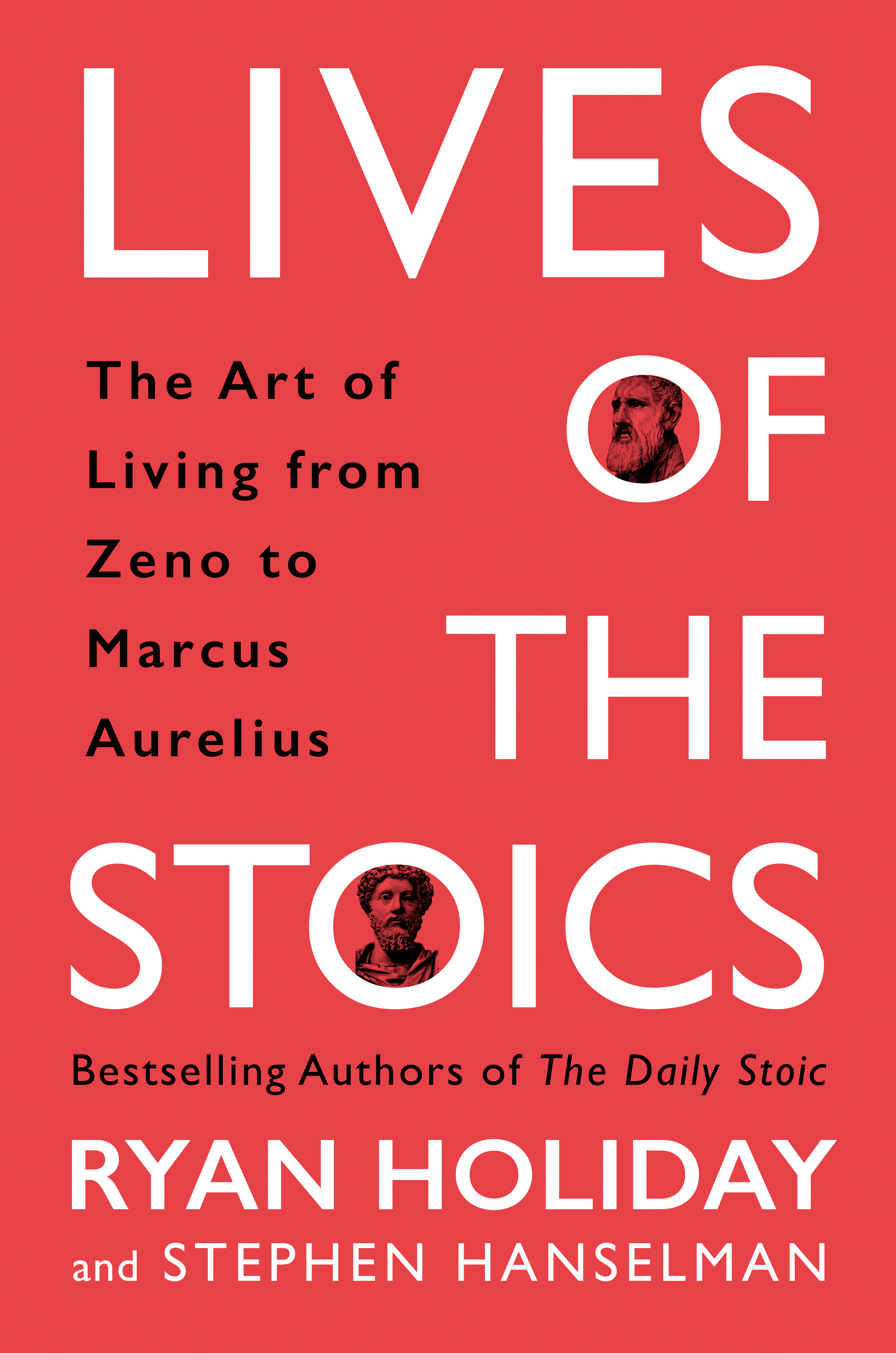Holiday (Stillness is the Key) and Hanselman (The Daily Stoic, with Holiday) have written an inspiring guide to the lives of the Stoics themselves, and what the ancients can teach us about happiness, success, resilience and virtue. Here, they talk about how we can apply Stoic teachings in today’s tumultuous world.
What can the writings of the Stoics teach us about dealing with adversity, especially the kind that so many people are going through right now?
Ryan: The Stoics would have started by preparing us for adversity long before we found ourselves in the situation we’re in. Obviously, it’s good to be positive, but I think the Stoics would have pushed back against some of the overweening positivity that defines a lot of self-help. Seneca talked about premeditatio malorum—essentially negative visualization. Part of the reason this pandemic has been so devastating is because we fooled ourselves into thinking we were beyond such things. Even now, most people you talk to are thinking about when things get better, when we’ll go back to normal. How many people are prepared for it to get worse? Seneca reminds us that the unexpected blow lands most heavily and that’s why we have to prepare mentally and physically for tough times…before the tough times. pre
Steve: The Stoics believed not only that adversity was a normal part of living, but that it provided, just as much as good times do, an opportunity to build our character. The great Stoic teacher Epictetus, who was born a slave and faced broken bones, harsh treatment, and much adversity in his life put it this way: “Difficulties show a person’s character. So when a challenge confronts you, remember that God is matching you with a younger sparring partner, as would a physical trainer. Why? Becoming an Olympian takes sweat! I think no one has a better challenge than yours, if only you would use it like an athlete would a younger sparring partner.” He’s not talking about a macho way of measuring your toughness, but rather is encouraging us to focus on the resources we possess to face each and every tough situation we encounter—we have our reason, the freedom of our choices, the strength that comes from practicing virtues like self-control and perseverance, and the role models of others who have faced even greater troubles and flourished.
Studies show that anxiety, which was on the rise before Covid-19, is now reaching unprecedented levels. What can we learn from the Stoics here?
Ryan: I think we have to realize that anxiety is just simply some medical condition like asthma that we’re powerless to do anything about. In Meditations, Marcus Aurelius talks about his own struggles with anxiety. He says, “Today I escaped anxiety. Or no, I discarded it, because it was within me, in my own perceptions — not outside.” I try to remember anxiety is not something that a situation or events are doing to me, but rather it’s something I am doing to myself. If I didn’t know about it, I wouldn’t be worried right? That isn’t an argument for deliberate ignorance, it’s just a reminder: We decide whether to get worked up about something. We decided to enter the spiral that anxiety than takes us down.
Steve: The Stoics taught that anxiety arises when we hope for or fear something that isn’t in our control. In the simplest terms, they tell us that if we want to cure anxiety we must stop wanting, and stop hoping to avoid, things over which we have no influence. When we turn away from these uncontrollable external things and instead shift our focus to the thoughts, attitudes, and decisions over which we do have control, we regain our agency, and with it a steadiness and calmness needed to function. Marcus Aurelius spent 15 years of his reign dealing with a terrible plague that killed millions, including several of the seven children he lost—he himself may have succumbed to the plague in the end. What did he do? He focused solely on his duty to build a good character while using his power for the common good.
As we face the election in a deeply divided country, anger is on the rise with often devastating results. What did the Stoics teach about anger?
Ryan: We’re internalized a bad idea lately–that outrage is a good thing. I’m not saying that the things that we’re seeing aren’t outrageous, they are. It’s that getting angry is rarely the productive emotion we think we are. Have you ever been glad you lost your temper? No, because you realize you made things worse. My view, which I take from the Stoics, is that most of the bad things in the world are not done by bad people. Getting upset at them is unlikely to change them or their minds. And what of the truly bad people? Well these are precisely the people we can’t afford to approach angrily or from an irrational place. We can only solve tough problems calmly, clearly, strategically. It wasn’t that the Stoics didn’t get angry or have tempers, it’s that they tamed their temper. They channeled that angry into a more productive, less volatile form. That’s how change happens.
Steve: Anger is a topic that nearly all the Stoics wrote about. When the first Roman emperor Augustus rose to power, he had two Stoic advisors at his side. One of them, Athenodorus, gave him a bit of advice he considered invaluable: whenever you get angry, recite the alphabet to yourself before you do or say anything. What a powerful exercise for a leader with absolute power—and for us! In our era of partisan politics and the 24/7/365 outrage machine of cable news, anger seems to be the default mode of coping with everything. Seneca, while in exile by the emperor Claudius on the island of Corsica, wrote a whole book on anger dedicated to his brother. He wrote: “There is no more stupefying thing than anger, nothing more bent on its own strength. If successful, none more arrogant, if foiled, none more insane—since it’s not driven back by weariness even in defeat, when fortune removes its adversary it turns its teeth on itself.” Much of what we experience in life today is little more than anger biting itself, as Seneca put it. When we see this and decide to unplug ourselves from the outrage machine, things immediately get better. Even Marcus Aurelius had his own anger-coping reminders, such as this one: “Keep this thought handy when you feel a fit of rage coming on—it isn’t manly to be enraged. Rather, gentleness and civility are more human, and therefor manlier. A real man doesn’t give way to anger and discontent, and such a person has strength, courage, and endurance—unlike the angry and complaining. The nearer a man comes to a calm mind, the closer he is to strength.” The Stoics believed that gentleness and civility were the only real solution to anger. Good advice for today!

Portfolio Books | September 29, 2020



